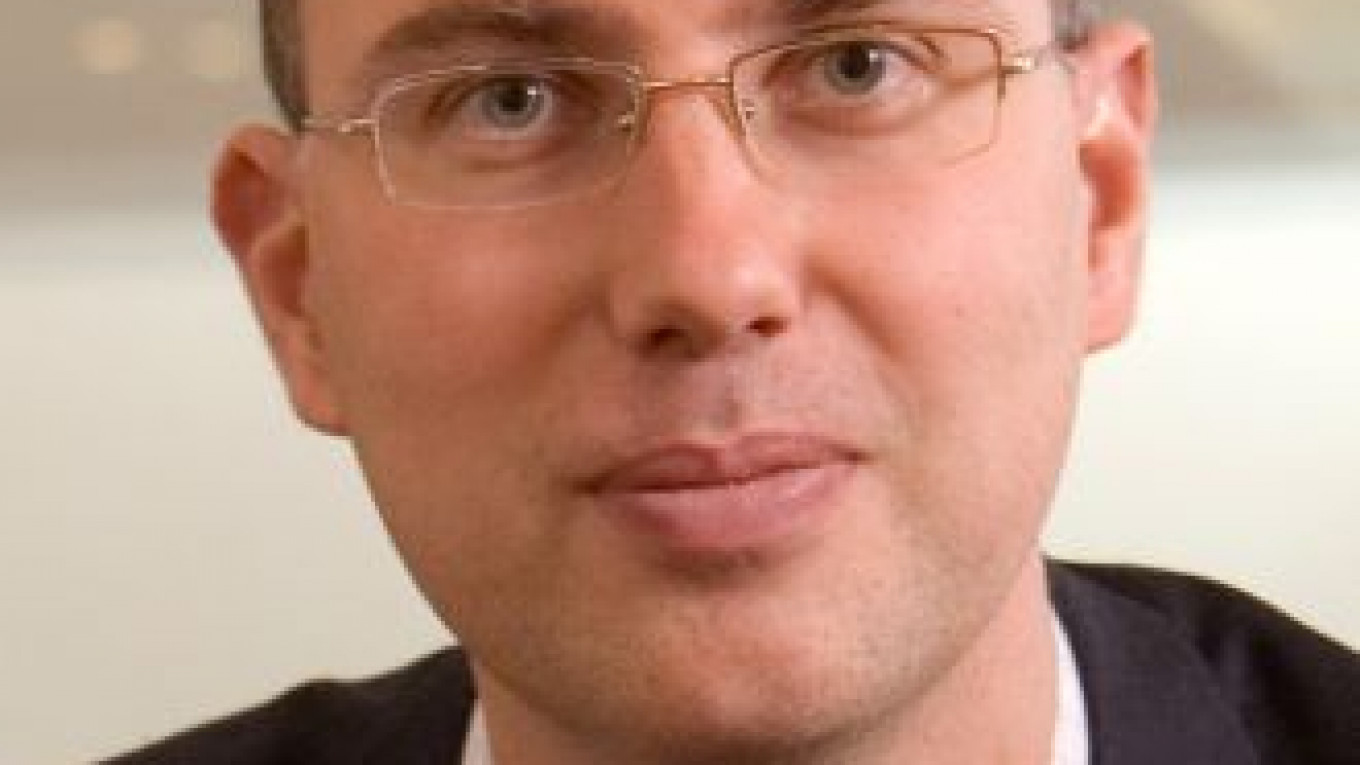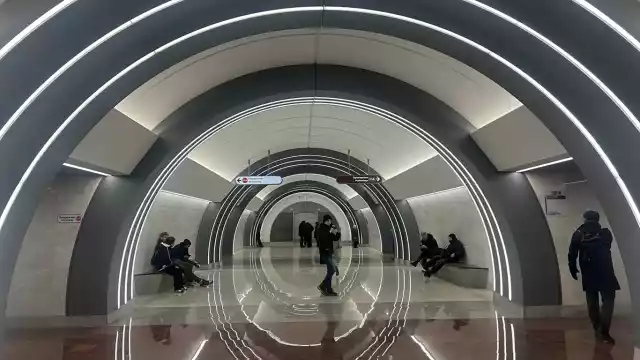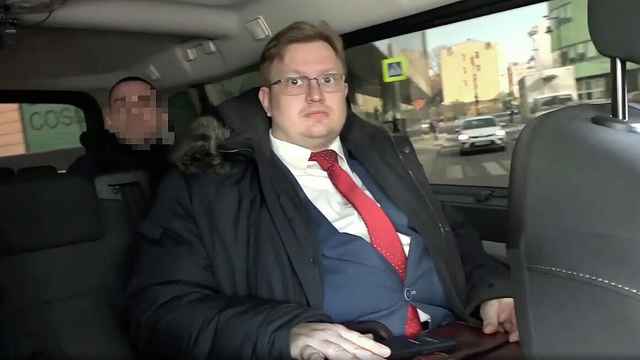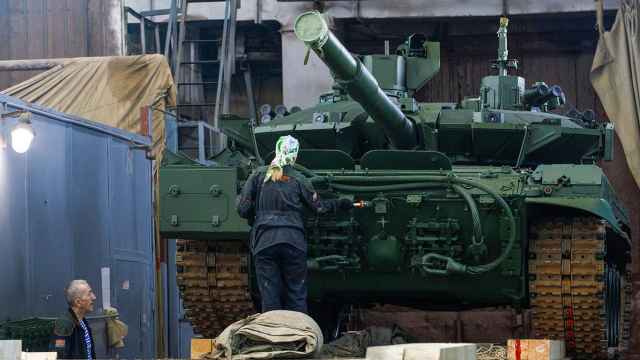ST. PETERSBURG — Heads of the biggest international equity funds and foreign companies investing locally greeted the details of President Dmitry Medvedev's new sovereign investment fund with enthusiasm, seeing it as a vehicle to reduce risks and attract investors who don't have a local presence.
The mechanics of the Russian Direct Investment Fund, or RDIF — which is expected to receive up to $10 billion of state funding over the next five years — were officially made public at a panel discussion during the St. Petersburg International Economic Forum last week.
In his opening speech at the forum, Medvedev said interest in the fund is "very strong."
News of the fund's establishment was like "a good phone call or a good e-mail" for foreign investors, many of which are concerned about the rule of law and corruption in Russia, said Stephen Schwarzman, chairman and co-founder of Blackstone, a U.S.-based asset management company that is contemplating participation.
The RDIF will invest $50 million to $500 million in each project, while a co-investor must put up at least the same amount.
To qualify as a partner, a co-investor must have either $1 billion of assets under management or $1 billion of revenues. The fund, whose role in a given project is expected to last for up to seven years, will limit its stake to a maximum of 49 percent, but expects its average share to be about 25 percent.
The fact that the government is ready to be "on the same footing" with the foreign investors and co-invest in the projects is encouraging, Schwarzman told participants of the panel.
"It is always good to have friends when you're going into a place which does not seem so easy," he said.
The risk sharing and an opportunity to find "the ideal partner" makes the sovereign direct investment fund attractive, said Badr Jafar, president of Crescent Petroleum Group of Companies headquartered in the United Arab Emirates.
Jafar said potential investors might be interested in partnering with small and medium businesses that have local experience and that the funds could become a "channel" ensuring the proper flow of investments into such enterprises.
Ernst & Young chief executive James Turley agreed, saying that providing "the local knowledge" of how to invest in Russia to companies that have no local presence is one of the fund's most crucial roles and makes it "enormously effective."
The sovereign direct investment fund, which is a 100 percent subsidiary of the state financial institution Vneshekonombank, will focus on projects in a number of strategic sectors including energy efficiency, nuclear energy, aerospace, pharmaceuticals and health care, telecoms and IT, as well as housing development and transportation.
The government is interested in implementing investment projects because it co-invests together with the foreign partners, Sergei Belyakov, head of the Economic Development Ministry's investment policy department, said at the forum separately.
He said the fund would also help counter capital flight, which stood at $30 billion for the first four months of this year.
Edward Eisler, who co-heads the global securities division at Goldman Sachs, said the Russian foreign direct investment fund was "an appealing proposition."
"The large inflow that we would expect to see is generated both by the fund itself and all the other co-investors. … We would envision ourselves to be very much involved in the fund," he said.
Eisler said all sectors that benefit from the growth of the middle class could be potentially attractive for investments.
"To invest in Russia, which has a lot of fantastic opportunities, you really want to have a local partner," said David Bonderman, a founding partner of TPG, a global private investment firm that manages more than $47 billion of capital.
He said, however, that one should be cautious investing in infrastructure, which is traditionally a lower-return sector.
Though he praised the fund as part of the Kremlin's efforts "to open up the economy," British Trade and Investment Minister Lord Green said it's hardly an alternative measure to solve problems that inhibit foreign companies from investing locally — like red tape.
Some investors are already bringing their projects to the fund, said its chief executive, Kirill Dmitriyev, adding that initial projects now under consideration include those in infrastructure, health care and pharmaceuticals.
The first deals are expected in the next six to nine months, Dmitriyev told reporters at the forum.
Vneshekonombank chief Vladimir Dmitriyev said at a meeting with Prime Minister Vladimir Putin earlier this week that he expects the RDIF to provide about $500 million in project financing for "one or two deals" in 2011.
More details on the fund can be found at www.rdif.ru/Eng_Index.
A Message from The Moscow Times:
Dear readers,
We are facing unprecedented challenges. Russia's Prosecutor General's Office has designated The Moscow Times as an "undesirable" organization, criminalizing our work and putting our staff at risk of prosecution. This follows our earlier unjust labeling as a "foreign agent."
These actions are direct attempts to silence independent journalism in Russia. The authorities claim our work "discredits the decisions of the Russian leadership." We see things differently: we strive to provide accurate, unbiased reporting on Russia.
We, the journalists of The Moscow Times, refuse to be silenced. But to continue our work, we need your help.
Your support, no matter how small, makes a world of difference. If you can, please support us monthly starting from just $2. It's quick to set up, and every contribution makes a significant impact.
By supporting The Moscow Times, you're defending open, independent journalism in the face of repression. Thank you for standing with us.
Remind me later.






